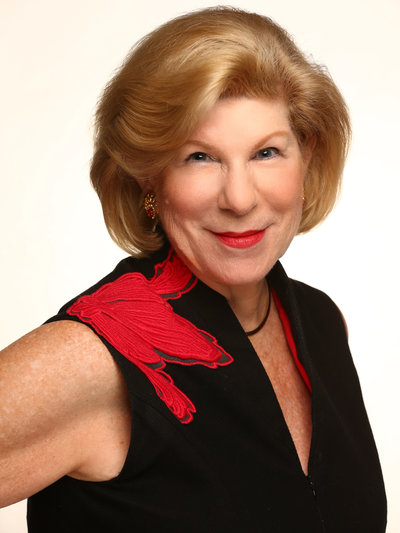Award-winning National Public Radio legal affairs correspondent Nina Totenberg is this year's Women's History Month speaker. She will speak on "Women's History and the Supreme Court," from 7:30-9 p.m. Thursday, March 2, in the O'Shaughnessy Educational Center auditorium at the University of St. Thomas. The event is sponsored by the Luann Dummer Center for Women at St. Thomas.
Totenberg was scheduled to appear as last year's Women's History Month speaker but was replaced by Roxane Gay when she had to withdraw to cover pressing events in the U.S. Supreme Court.
Totenberg's reports air regularly on NPR's critically acclaimed programs "All Things Considered," "Morning Edition" and "Weekend Edition." Her career as legal correspondent for NPR, which she joined in 1975, has revealed the inner workings of the Supreme Court, demanding a new level of accountability from the United States legal system.
Newsweek magazine said, "The mainstays [of NPR] are 'Morning Edition' and 'All Things Considered.' But the creme de la creme is Nina Totenberg."
Totenberg spent a few minutes answering some questions about her career earlier this week.
In your career, you have broken a number of momentous stories – former President Nixon’s secret list of Supreme Court candidates, Supreme Court Chief Justice nominee William Rehnquist’s opposition to the Equal Rights Amendment, Anita Hill’s sexual harassment allegations against Supreme Court Justice nominee Clarence Thomas, to name a few. How much do you rely on your intuition to identify a buried story?
[Laughs] Sometimes I rely on intuition! You look around and things don’t add up and you start kicking the tires and see what you come up with. And then sometimes you just stumble across the story.
Describe your feelings the day Sandra Day O’Connor was sworn in as the United States’ first female Supreme Court justice in 1981.
I had been covering the courts by then for 13 years and there never was a woman on the court and there rarely was a woman advocate, so it was a great day as a woman to see a woman being sworn into the nation’s highest court. I was there when Reagan announced her appointment, but I didn't see her sworn in.
What’s your take on President Trump’s routine dismissal of questions from journalists that ask of him to scrutinize his policies? And how do you think members of the press can effectively press him to respond?
President Trump has broken the mold on a lot of things and maybe we can’t get him to respond to anything, but we have to continue to try and find out on our own because the American public expects us to get answers. If we don’t get answers from him, we’ll get them from elsewhere. That's our job.
Have you ever, as a reporter, asked a question that you were afraid to ask but knew you had to ask it?
Lots of times! Sometimes I get completely shot down and sometimes they answer with ease. The classic one is from the time you are a young reporter doing a profile and you ask them, "How much money do you make?" I never knew how much my parents made. I was taught it was rude to ask. So when I had to ask people I was interviewing, I was amazed that almost everybody answered.
In your experience, has the way women assert themselves in politics changed or evolved since you began your career?
To some extent they are more assertive. It used to be you got more with sugar than vinegar. Though that’s somewhat still true now and with men as well, I suppose. As a woman, you don’t have to play the role of little lady and be excessively demure like you used to.
I feel I don’t have to be aggressive as I used to be. People thought they could fob off young women when I was starting out. Now I may be more insistent but I don’t have to be as aggressive. People answer me.
Name three traits indispensable to a journalist.
Persistence, the ability to stop and make deadlines even if you don’t know everything you’d like to know, and thoroughness. I realize those last two are somewhat in conflict but there’s always a second day.







